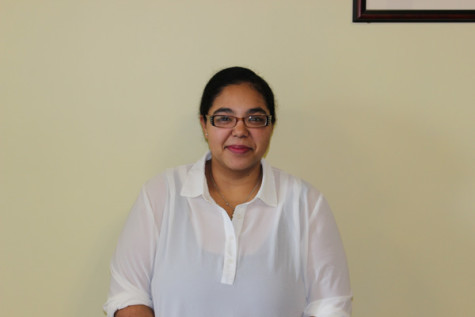Sharing a classroom experience with students from other campuses may sound like a far-off idea, but it is to become a reality for Pitt regional campus students next semester.
Students at Pitt-Johnstown, Greensburg, Bradford and Titusville regional campuses are to have video learning classes available, according to a flier provided by UPJ Registrar Chris Stumpf.
He said, although Pitt-Titusville students are able to take courses, Titusville professors are not offering any courses.
According to Stumpf, the Provost’s Office in Pittsburgh decided on the classes. He said the goal was to offer courses that may not be available at other campuses.
The Pitt-Bradford classes offered are Islam and Social Justice and Cancer Biology. Pitt-Greensburg’s classes are Supernatural Worlds: Anthropology of Religion, Globalization and Intro to Theatre Arts Part II. Pitt-Johnstown courses offered are Contemporary Issues in Criminal Justice and Stage Management.
Students may register for these classes during their regular enrollment period through the My Pitt Student Center website.
Finance and Administration Vice President Amy Buxbaum said Biddle 201, which has been designated as the UPJ campus video-learning classroom is to be outfitted with new technology and furniture. “The university architect assigned on the video-learning classroom project took special care to make sure that each classroom is using the same paint colors and layout design,” Buxbaum said.
“This level of detail and coordination will help create an integrated feel for both students and faculty who are talking with people on another campus in real time.”
There are seven courses available for students to take: two from Pitt-Bradford, three from Pitt-Greensburg and two from UPJ.
Pitt-Bradford Associate Biology professor Lauren Yaich is teaching Cancer Biology.
She said she has taught online courses before, but not in this type of setting.
Yaich said this course is beneficial to both her and her students.
“This course is a good preparation for those biology students who have an interest in cancer biology, especially those planning to go on to medical or graduate school, since we spend a lot of time talking about advanced research methods,” she said.
“It will also provide the students an opportunity to meet and work with other Pitt students on the other campuses.”
She said it also benefits her because it is an opportunity to interact with a new set of students and develop new skills in interactive teaching, which she said is important with the growth of distance education.
Pitt-Greensburg Associate Theatre Arts professor Stephen Schrum said he decided to teach Intro to Theatre Part II, because of a discussion he had with UPJ professor John Teacher.
“I discovered his students could use a theater history course, and decided that offering my intro section might add to their curriculum,” Schrum said.
Schrum said he has had experience with distance learning twice in the past: once at Penn State University in the ‘90s, and once at West Virginia University, linking three National Guard sites.
Schrum said he will judge attendance based on what he can see on the TV screens, and papers will be submitted through www.turnitin.com.
Schrum also said Teacher is offering Stage Management to the other campuses and that it will be a valuable experience for those enrolling in the course.
UPJ Sociology professor Ross Kleinstuber said he thought participating in a video-learning class could open up opportunities to justice administration and criminology majors to take classes not offered at UPJ.
“I am the only full-time justice administration and criminology faculty member, and I teach two sociology and two justice and administration (courses) each term, so students are very limited in the available justice administration courses,” Kleinstuber said.
Kleinstuber said papers for his class are to be submitted via CourseWeb, which is how he already receives papers. He said he has yet to figure out exam logistics, but he may omit exams and just grade students’ papers and online participation.
Information Technology User Services DirectorRob Eckenrod said University of Pittsburgh officials set aside a block of money for each campus to renovate distance-education classrooms.
Eckenrod said he took part in coordinating the project in terms of setting up rooms and managing construction. He said maintenance workers did the classroom renovations and the IT staff did the network and electronic set.
He said he also worked with the Center for Instructional Development and Distance Education at Pitt-Oakland, which coordinates the network at all campuses.
“Each room will have multiple video cameras to show the board, computer and other students. There will be two large screen TVs in the front and two in the back of the classroom.”
Eckenrod said the TVs in front are to focus on the board or computer depending on what the professor is using.
He said the instructor is to see a segmented screen in the back with all connected classes. He said the other screen is to show any content students want to share with the professor.
The room is to be equipped with live audio among all classes. There are three ceiling microphones installed in the classroom, so anyone can speak.
Eckenrod said IT department officials are to hire some student staff to help manage courses throughout the semester.
“They will be in the room throughout the entire class to do tech support. The trained students would know enough to troubleshoot most issues. Major issues would be referred to the IT department,” he said.

